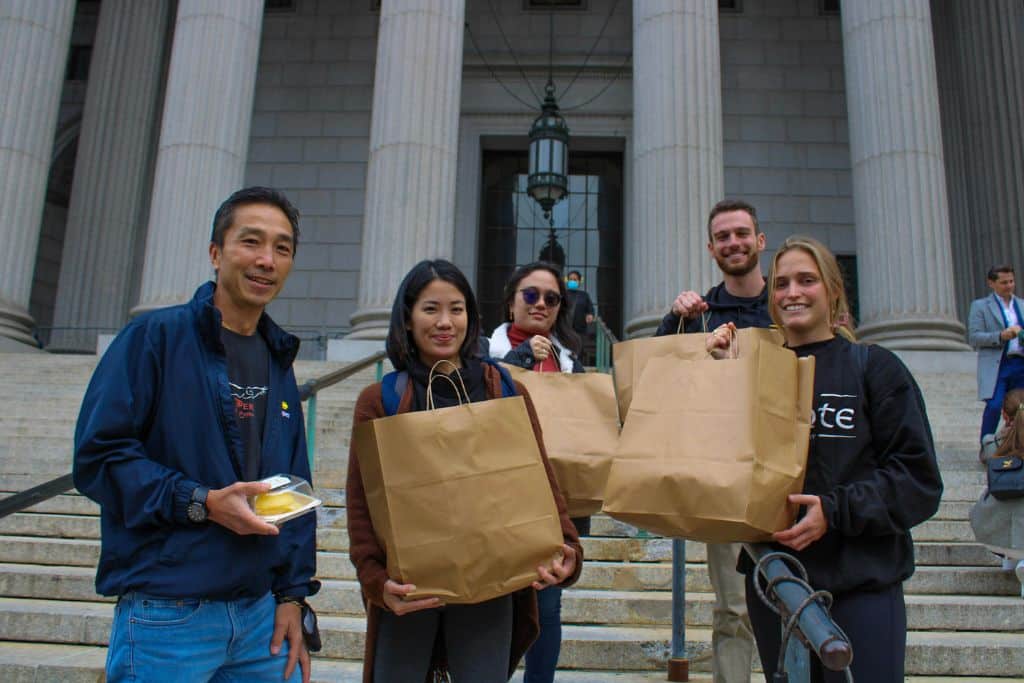In a world grappling with hunger and a rapidly unfolding climate crisis, an often overlooked solution lies in the simple yet impactful practice of food rescue. As we navigate the complexities of a globalized food system, it is time to shine a light on the potential of rescuing surplus food to address food insecurity and reduce our carbon footprint. This piece explores the vital role of food rescue initiatives and the transformative impact they can have on our planet.
—
In a world where approximately 1.3 billion tons of food is wasted each year, and between 691 and 783 million people face hunger, the disconnect between surplus and scarcity is glaringly evident. Food rescue, a process that involves collecting and redistributing surplus food to those experiencing food insecurity, emerges as a powerful solution to this paradox. This not only addresses immediate hunger but also tackles the environmental toll of wasted food, a critical player in the unfolding climate crisis.
According to the World Food Programme (WFP), about one-third of the food produced for human consumption is lost or wasted globally. This staggering statistic not only reflects a moral imperative to address the issue but also underscores the environmental consequences associated with wasted food. As food decomposes in landfills, it releases methane, a harmful greenhouse gas that is more than 28 times worse than carbon dioxide (CO2) at trapping heat in the atmosphere, contributing significantly to climate change.
Food rescue initiatives, however, present a compelling solution to this dual crisis. By redirecting surplus food from producers, distributors, and retailers to charitable organizations such as food banks, they not only alleviate food insecurity but also prevent perfectly good food from ending up in our landfills. The environmental benefits of food rescue are significant: they not only help reduce methane emissions from decomposing organic waste but can also prevent the waste of the natural resources needed to produce and transport our food.
You might also like: 25 Shocking Facts About Food Waste
Our work at Rescuing Leftover Cuisine is an example of the power of food rescue initiatives. Operating with a limited number of employees and the help of our dedicated volunteers, we have redistributed over 12 million meals since 2013, diverting over 14 million pounds of food from landfills throughout the United States. The scale of impact achievable through such initiatives is a testament to the untapped potential of rescuing surplus food throughout the world.

Moreover, the economic benefits of food rescue cannot be overstated. A 2017 study conducted by the World Resources Institute (WRI) found that there is a 14:1 return on investment for every US$1 invested in reducing wasted food. This underscores the financial wisdom of redirecting surplus food to those in need of a meal, rather than disposing of it as waste. In a world grappling with economic uncertainties, investing in food rescue initiatives not only aligns with social responsibility but also makes economic sense.
Despite the success stories and the clear benefits of food rescue, challenges persist. Legal and logistical barriers, coupled with the stigma around food donations, hinder the seamless flow of surplus food from producers to those experiencing food insecurity. Governments, businesses, and communities need to collaborate to establish supportive policies, streamline donation processes, and educate the public about the safety and value of rescued food. New York, for example, has implemented a law requiring businesses and institutions that generate an annual average of two tons of wasted food per week or more must: donate excess edible food or recycle remaining food scraps.
In addition to policy changes, raising awareness about the environmental impact of wasted food and the potential of food rescue is crucial. Initiatives like the “Save the Food” campaign in the US, launched by the Natural Resources Defense Council and the Ad Council, have made strides in educating the public about the consequences of wasted food. Similar efforts need to be amplified globally to foster a collective understanding of the urgency and significance of food rescue.
Investing in technology and innovation is another avenue for enhancing the efficiency of food rescue efforts. Apps and platforms, like our web-based app at Rescuing Leftover Cuisine that connect surplus food providers with organizations serving the food insecure can revolutionize the way we address wasted food. Such technological solutions, coupled with policy innovations, can serve as a blueprint for other communities to follow suit.
As we stand at the intersection of a hunger crisis and environmental degradation, the need for effective and widespread food rescue initiatives has never been more urgent. The power to transform waste into wealth, both in terms of nourishing those in need and protecting our planet, lies within our grasp. It is incumbent upon governments, businesses, and individuals to prioritize and invest in food rescue, recognizing it as a linchpin in the transition towards a more sustainable and equitable future.
Featured image: Supplied.
You might also like: Why Global Food Security Matters in 2024


















